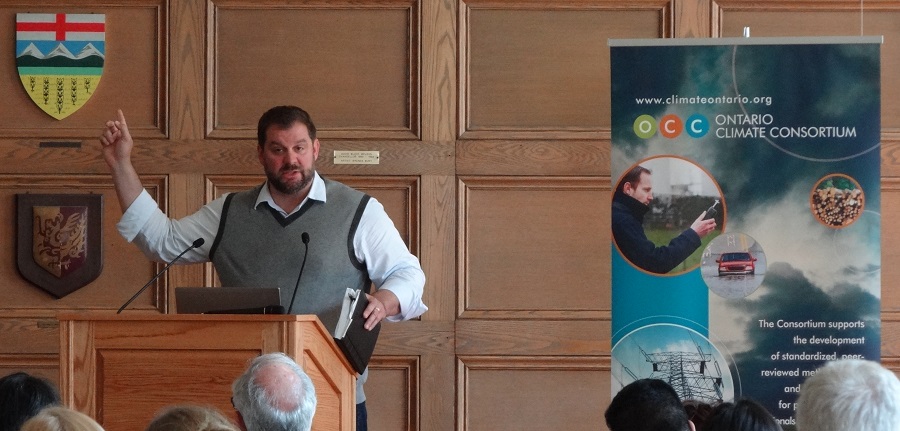Science and Cities Connect
The Second Annual Ontario Climate Consortium Research Symposium
The OCC hosted its second annual climate change research symposium at Western University in London, Ontario on May 13, 2014. The symposium was open to private and public sector decision makers and practitioners, researchers, scholars and members of the NGO community once again. Attendees had the opportunity to better understand the implications of the IPCC’s 5th Assessment report, the impact of extreme weather on urban environments, and potential solutions for best communicating the challenges of a changing climate.

FEATURED PANELS
- Understanding AR5 and the Impact of Climate Change on Canada
- Cities and Climate Change – Challenges and Opportunities for Adaptation
- Connecting with the Climate – A Communications Challenge

Kevin Grandia of Spake Media House Inc.
In 2013 the Intergovernmental Panel on Climate Change (IPCC) released the long-awaited Fifth Assessment Report, the scientific basis of our understanding of climate change. The message reiterated by the global scientific community was unequivocal: the climate is changing. The OCC’s second annual climate change research symposium was focused on better understanding the implications of the report.
The kinds of extreme weather events that Canadians experienced in 2013 are expected to become more frequent and severe in the future. According to the Insurance Bureau of Canada, insured losses across the country due to extreme weather amounted to $3.2 billion. Recognizing the need for Canadian municipalities to make adaptation part of their planning, the symposium explored the intersection between climate change, extreme weather, and the cities and communities in which we live.
A third and critical element of the 2014 symposium was a discussion of the challenges associated with communicating the science of climate change. How should scientists, educators and climate professionals approach the task of educating a new generation, informing decision makers and ultimately making the case for investment to support the development of resilient communities?
